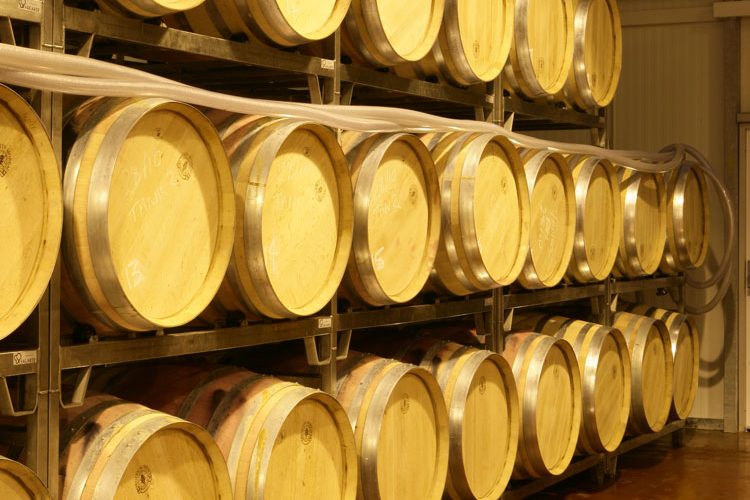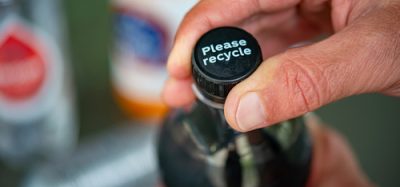How do wildfires affect wine? A new study finds out
- Like
- Digg
- Del
- Tumblr
- VKontakte
- Buffer
- Love This
- Odnoklassniki
- Meneame
- Blogger
- Amazon
- Yahoo Mail
- Gmail
- AOL
- Newsvine
- HackerNews
- Evernote
- MySpace
- Mail.ru
- Viadeo
- Line
- Comments
- Yummly
- SMS
- Viber
- Telegram
- Subscribe
- Skype
- Facebook Messenger
- Kakao
- LiveJournal
- Yammer
- Edgar
- Fintel
- Mix
- Instapaper
- Copy Link
Posted: 14 March 2022 | New Food | No comments yet
A new study led by researchers in California has revealed the detrimental effects of wildfires on the wine industry.


Can wildfires affect the taste of wine? Yes, according to new research. The latest study in how wildfires impact wine has found that smoke from the fires are causing a detrimental effect on wine grapes, leading to problems in the wine industry.
The research suggests that volatile compounds in the smoke from wildfires can be absorbed by grapes and produce an unpleasant taste known as “smoke taint” in wines made from affected grapes.
The study, led by scientists at University of California Santa Cruz and published in the Journal of Natural Products, provides data and guidelines for using analytical chemistry to identify grapes and wines affected by smoke taint. The data is based on an analysis of more than 200 samples of grapes and wine from 21 grape-growing regions in California and Oregon.
Lead author Phil Crews, research professor of chemistry at the university and winemaker and owner of a small winery said that the extent of the smoke taint problem came to his attention in the aftermath of the 2018 Mendocino Complex Fire, when large wineries began rejecting grapes from the affected region.
“What I discovered was that proper analytical data was not provided to figure out if the grapes or wines were affected by the smoke,” he said.
Crews found that the best research on the problem had been done at the Australian Wine Research Institute (AWRI), where researchers had identified an array of compounds that could be detected in affected grapes and wines and used as “biomarkers” of smoke taint. He also found that most US labs used by the wine industry were not performing adequate measurements. He designed the new study to apply the Australian methods to grapes and wines from California and Oregon.
You may also like:
“This research is highly valuable, with the potential to save countless dollars, and is increasingly relevant in our world of drought and climate change,” said Eleni Papadakis, a winemaking consultant, “I believe I speak for the whole of the winemaking community when I express the excitement and appreciation for the strong data and evidence-based guidance Professor Crews and his team have provided with this ground-breaking work.”
Previous studies have associated smoke taint with volatile phenols present in smoke from burning vegetation. These compounds are absorbed through the skin of ripening grapes and accumulate in the grapes, where they become bound to sugars to form non-volatile compounds called ‘phenolic diglycosides’. In the bound form, the phenolic compounds cannot be smelled or tasted, but the foul-tasting free phenols can be released by enzymes, either during fermentation of the wine or in the mouth by enzymes or bacteria present in saliva.
“We found that the phenolic diglycosides are stable in cabernet sauvignon during bottle aging, but then during tasting the monomers that smell bad get released in the mouth,” Crews said.
According to Crews, it is important to measure the bound phenolic diglycosides directly. These large compounds are not readily detected with the standard methods used to analyse aroma and flavour compounds in wine, but they can be measured using more sophisticated methods, such as ultra-high-performance liquid chromatography (UHPLC) and quantitative mass spectrometry.
The new study claims to provide some of the first quantitative measurements of phenolic diglycosides in premium California and Oregon grapes and wines. The results include baseline data for normal grapes, as well as grapes exposed to six different levels of natural wildfire smoke.
“There are still major gaps in our understanding of these compounds, so more research is needed,” Crews said. “But people can use these procedures now to look at a bottle of wine or a batch of grapes and tell if it’s likely to be affected by smoke taint.”
Related topics
Beverages, Contaminants, Environment, Ingredients, Research & development
Related organisations
Australian Wine Research Institute, University of California Santa Cruz









